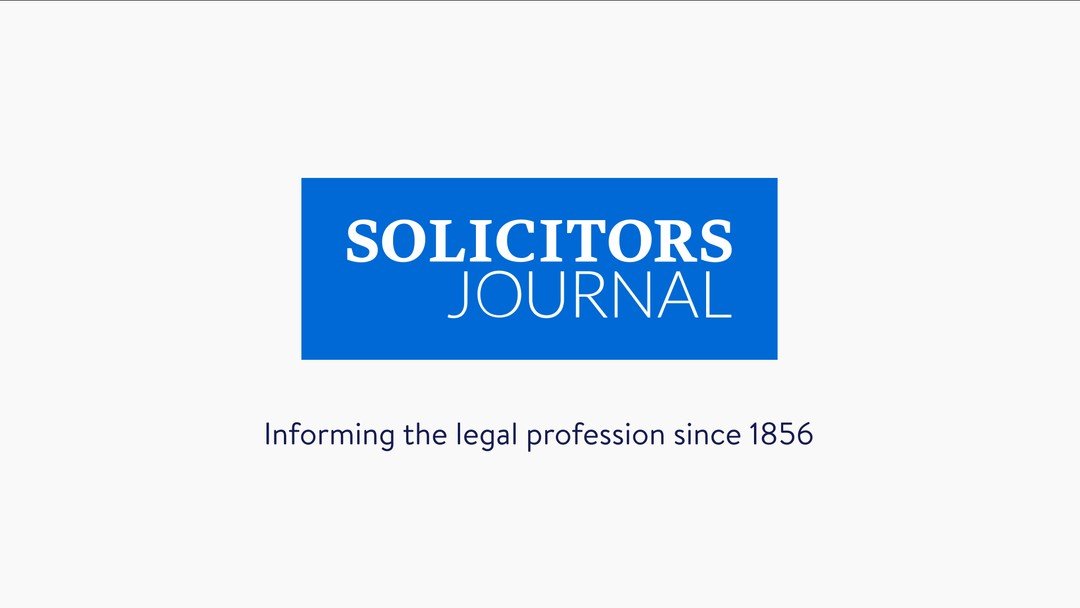Regulatory watch | New cost concerns

We all know our clients' rights, but do we know our own? Susanna Heley asks what can be done about the growing regulatory issues arising out of funding arrangements
Solicitors are not, generally speaking, a group that attracts much sympathy. We tend to be seen as perfectly capable of looking out for our own interests - so much so that it is necessary for us to protect our clients by virtually begging them to complain about the services ?we provide.
There are however increasing numbers of sophisticated and unscrupulous individuals who may use the system to take advantage of the vulnerabilities of solicitors. We have seen examples of such conduct in relation to registration fraud and money laundering where dishonest persons use the badge of solicitor to lend fraudulent transactions a veneer of legitimacy. Solicitors will also be familiar with the vexatious litigant and the serial complainant - those who use any minor infraction to seek to extort settlements from solicitors; seeking to take advantage of the protections we have in place to support the truly vulnerable.
As a profession, we know all about our clients' rights, but what of ours? Last week, the Court of Appeal considered a case involving solicitors' rights in relation to a claim for costs. Khans Solicitors (A Firm) v Chifuntwe & Secretary of State for the Home Department [2013] EWCA Civ 481 arose out of a successful action conducted by the claimant on behalf of the first defendant.
The first defendant was awarded costs to be assessed if not agreed but he had ?not paid all of the costs incurred. The claimant therefore had an interest in the costs recovered.
This is where the story gets interesting. The first defendant wrote to his opponents accepting their first offer on costs (which represented a large discount on the costs claimed) and asking them to pay him directly. When his solicitors found out, they warned their opponents not to pay the first defendant as he had not paid as he claimed.
The solicitors failed then to take steps ?to protect their position, the opponents ?paid the first defendant directly and he promptly vanished with the money.
The Court of Appeal considered two issues: whether the agreement made by the first defendant as to the level of costs was binding, and what remedy the solicitors were entitled to in light of the payment to the first defendant where the second defendant was on notice as to the claimant's interest. While careful not to criticise the conduct of those representing the second defendant, the court held that the compromise was binding but that the payment to the first defendant was not a good discharge of the agreement and had to be made again with due credit for funds received from the first defendant.
This case is very timely, reported while the profession is grappling with the effects of the Jackson reforms and the introduction of damages based agreements. We are entering into a period where the risk of conflict between solicitor and client at the costs stage is greater than ever. The range of funding arrangements now available is more extensive and complex and each has its own benefits and drawbacks.
The SRA handbook requires solicitors to recommend funding arrangements which are lawful and in the best interests of clients. The arrangement which is best for the client may not always be best for the solicitor and there is therefore potential for an own interest conflict, which would prevent the solicitor from acting. It is, of course, worth noting that there are no get outs or exceptions in relation to own-interest conflicts. If such exists, a solicitor cannot act. Full stop. Should solicitors therefore be recommending that clients take independent advice on funding arrangements? What steps can solicitors take to protect their entitlement to costs in the event that clients take matters into their own hands as Khan?
The regulatory issues arising out of funding arrangements are far from clear at this stage.
How the issue of potential conflicts will be dealt with is very important, both in regulatory terms and in how the legal ombudsman is likely to view such matters. If the existence of multiple possible funding arrangements creates an enhanced risk of conflict, will clients be denied representation at all?
Looking at risks for the solicitor, if it is right that courts will intervene to protect a solicitor's right to costs if the other side is on notice of their interest in the claim, it's debatable how open solicitors can be with their opponents. Should solicitors be informing opponents that costs remain unpaid at the time of submitting their first claim for costs? Solicitors must reconcile that approach with the client's right ?to confidentiality?
In theory, as issues come to the attention of the SRA, they should disseminate useful guidance and information to the profession to assist practitioners to comply. For now, solicitors will have to use their best judgment (and keep detailed notes) as to how and why a particular arrangement should be chosen and why it is judged more appropriate than available alternatives.
Solicitors may also wish to revisit ?client care letters and terms of retainer as ?regards their rights in relation to claims for ?unpaid costs.
